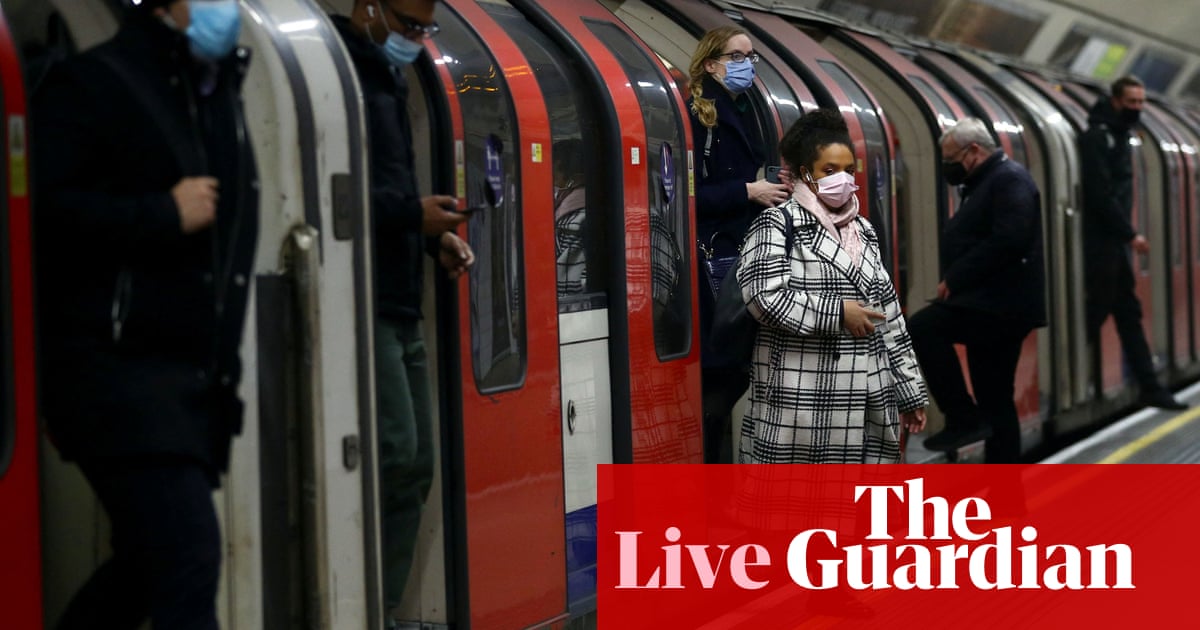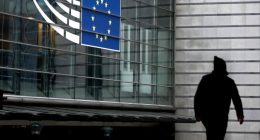
More museums have been forced to close due to the surge in cases of Covid-19.
On Monday it emerged that at least five national museums, including the Natural History Museum and Edinburgh Castle were shutting their doors because of Covid-related staff absences.
Several other attractions have also announced they have closed, or will close, early. They include London’s Museum of the Home, the Bexhill Museum, the Richmond Museum, and the Soldiers of Oxfordshire Museum (Sofo) in Woodstock.
In a tweet Sofo said: “We’ve had to move to a #PlanB of our own – we now close from 5pm Sunday 19th December 2021.”
SOFO Museum (@SOFOtrust)
🎅 🚨 #Christmas and #NewYear 🚨 🥳
We’ve had to move to a #PlanB of our own – we now close from 5pm Sunday 19th December 2021, but you should still be able to visit us again from 4th January 2022
Plus, #JamesBond will return in #SpyOxfordshire – now extended to 24 April 2022! pic.twitter.com/A7RlRNy23G
The Horniman Museum in South London has restricted its opening times to three and half hours in the afternoons.
Horniman Museum and Gardens (@HornimanMuseum)
Linking to the Museum’s Natural History collections, the Animal Walk looks at the connection between domesticated animals and their wild relations, and why people live alongside domesticated animals.
Open daily, 12:30pm – 4pm.
Closed on Christmas Day.https://t.co/BeqexiCH3V pic.twitter.com/AYmNGewyMK
The museum of the Home has announced it will close on Wednesday and will not reopen until 4 January.
Museum of the Home (@MuseumoftheHome)
Due to staff shortages the Museum will close at 5pm on Wednesday 22 December. We plan to reopen to the public on Tuesday 4 January, 2022.
Book for the new year https://t.co/uiRofKQTS5
From everyone here at the Museum – stay safe and well. We look forward to welcoming you back. pic.twitter.com/dHZC4ulECD
The museum of Richmond said it had decided to close for the festive season “earlier than planned”.
Museum of Richmond (@museumrichmond)
We have decided to close the Museum for the festive season, earlier than planned. We look forward to welcoming you to the Museum in 2022 for an exciting programme of exhibitions and events, and wish you all a safe and Merry Christmas and Happy New Year! 🎄🥳 pic.twitter.com/qT4gVHHUCF
Bexhill Museum, meanwhile, has closed until Boxing Day when it plans to reopen at 11am.
Bexhill Museum (@bexhillmuseum)
Bexhill Museum is now closed until Boxing Day. From Sunday 26.12.2021 to Bank Holiday Monday 3.1.2022 we are open 11am to 4pm, we will then close until 25.1.2022. Merry Christmas & A Happy New Year! #Bexhill #Museum #Sussex #Christmas https://t.co/HWyCg74ukW pic.twitter.com/SibvtSOmcJ
The UK government borrowed £17.4bn in November, outstripping economists’ predictions and suggesting debt could far overshoot officials’ forecasts if the Omicron coronavirus variant slows the economy as expected.
It was the highest November borrowing since comparable records began 30 years ago, barring last year. During the furlough scheme last year, the Treasury under Rishi Sunak set successive peacetime records for monthly borrowing as it covered the costs of 80% of salaries for millions of people as well as support schemes for businesses.
Significant borrowing has continued in 2021, with £136bn borrowed between April and November, according to data published on Tuesday by the Office for National Statistics. That was the second highest since records began in 1993.
It’s Rishi Sunak, not the Bank of England, who needs to act to get the UK’s economy firing againCarys RobertsRead more
The November borrowing was higher than the £16bn a poll of economists by Reuters predicted. Higher debt interest costs of £4.6bn and increased spending on the vaccine programme and test and trace contributed to the higher figure.
Government borrowing is likely to come under further scrutiny in the coming months from within the Conservative party. Public sector net debt – the amount borrowed over the years – was £2.3tn at the end of November, or 96.1% of GDP. That was the highest debt-to-GDP ratio since March 1963, when it was 98.3%.
Read more here:
The Treasury is set to respond today to concerns of businesses suffering financially from the latest Covid wave, a minister has said, while a leading scientist has added that the country is facing the most uncertain period of the pandemic since March 2020.
The cabinet office minister Steve Barclay said that, even though at cabinet on Monday ministers held back from a decision to press ahead with further restrictions, the plan B measures already implemented were having an impact.
Barclay told BBC Radio 4’s Today programme:
We’re acutely aware that, as a consequence of plan B, we have seen significant behaviour change.
You see that for example, in restaurant bookings. That is why the chancellor [Rishi Sunak] has been engaging with industry leaders.
Barclay said Sunak was talking to industry figures about their financial predicament and the government would be saying more about this issue later on Tuesday.
Barclay also said, in a separate interview, that the government was “keen to keep businesses open” and and that hospitality firms “should continue to plan for the bookings they have”.
Read the full story here:
Scientists have said waiting to implement further restrictions until the new year would “almost certainly be too late to have a material impact on the epidemic”.
The prime minister announced after a cabinet meeting that he would not be introducing any further Covid restrictions for now, adding: “The situation is extremely difficult and the arguments either way are very, very finely balanced.”
Yet, with Omicron infections currently doubling within 48 hours in most regions of the UK, the country may already have reached a ceiling where the rate of growth begins to fall and case numbers plateau.
Paul Hunter, a professor of medicine at the University of East Anglia. believes that point could come within days, with or without interventions. “If we implement control measures now, they are unlikely to be sufficient to reverse the growth, only slow it,” he said. “But there may still be benefits in slowing the peak, in terms of flattening the curve.”
One solution that appears to be on the table is a return to the “step 2” measures introduced as part of the roadmap out of lockdown earlier this year – chiefly, people only being allowed to socialise indoors with members of their household or a support bubble, and outdoor socialising being limited to groups of six people or two households, including at pubs and restaurants.
Prof Christina Pagel, the director of UCL’s clinical operational research unit, said:
Waiting for definitive evidence that it could cause the NHS to be overwhelmed will be too late to avert the crisis. Instead, the government should follow Sage [the Scientific Advisory Group for Emergencies] advice and return to step 2 of the roadmap immediately to prevent thousands of infections over the coming days and then monitor the situation hour by hour so that measures can be lifted as quickly as possible, hopefully even in time to enable limited household mixing over Christmas weekend.
Read the full story here:
Source: Guardian







